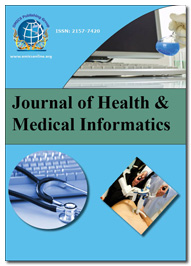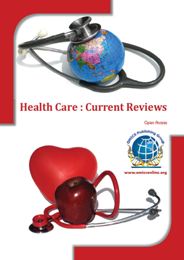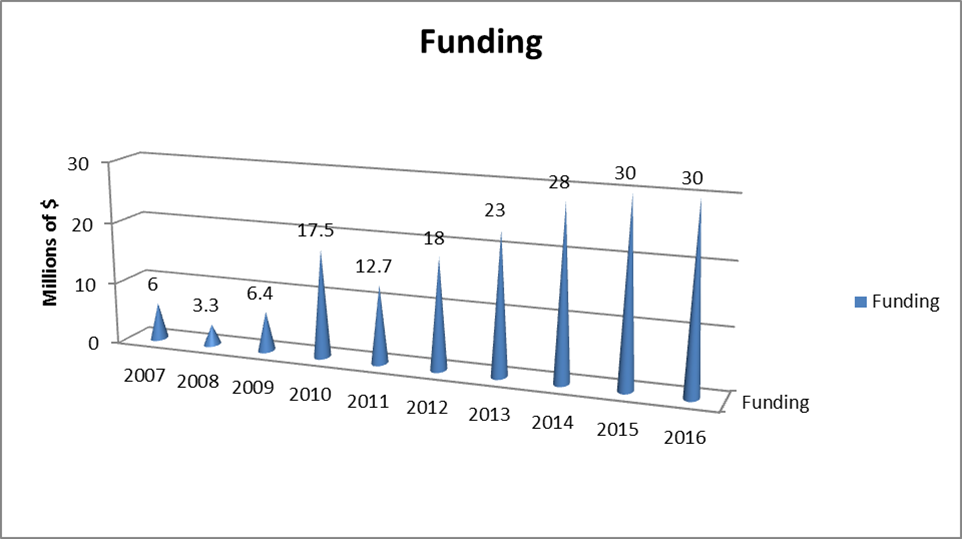Theme: To share knowledge & experience on information technology practice for better healthcare
Renowned Speakers
Health Informatics-2015
Health Informatics-2015 is an international event focusing on how health information technology and communication are bringing healthcare to a more effective and efficient level
. Disruptive and innovative approaches to health information technology from around the world
. New research from various academic institutions
. Comparisons of some of the “most advanced” systems: What can be learned?
. Transitional options from “outdated” EHRs to comprehensive e-care (including the Internet of medical Things)
. Global mHealth: Clinical data flow between devices and HIS systems. Clinics and hospital systems in the age of tablets and apps
. Patients becoming partners and consumers, leading their own health journeys for a better life
. Structural system changes, such as “Medical Homes”, the new hospital of the future, and new solutions for primary care
. How data analytics are a key factor to provide good healthcare in a connected world of Big Healthcare Data
Plan now to speak or participate at this event in beautiful Valencia, Spain.
Submit your abstract or register at the low early-bird fee.
OMICS Group, a leading scientific event organizer, conducts more than 100 scientific conferences worldwide in association with eminent professors, research scholars, student community as well as delegates from academia and business. It has 30,000 editorial board members and a reader database of more than 3 million, and its well-organized scientific programs are supported by over 100 scientific associations internationally.
Health informatics 2015 is a unique international conference that distinguishes itself by addressing topics that provide both scientific value and practical implementation strategies. It is unique in exploring international experiences and perspectives regarding
Healthcare Information Technologies and Communication:
Health Care Informatics is an emerging specialization in the health care industry that joins the disciplines of clinical health, management and epidemiological studies through the emergence of information technology and communication by providing new ways for health.
Health Data Acquisition, Management, Visualization:
Information technology has ability to improve the quality, productivity and safety of health care management. However, relatively very few health care providers have adopted IT. Lower dissemination is due partly to the intricacy of IT investment, which goes beyond procuring technology to change in modus operandi, and ensuring that general practitioners, nurses, and other staff use it. The policymakers need to better understand how information technology is diffusing across health service providers. Build for the future- Get ideas about a career that conjoins the technical world of computer applications and the varied environment of the health care providers. Network, Connect and Exchange ideas about the latest information on global health informatics. Extend real-time communications of health informatics among health care professionals facilitating the relevant use of health information systems and exchange of health information among health care and public health sector professionals.
Health care Application in Systems and Technologies:
Health care Application in Systems and Technologies influences need for innovative approaches to the design and delivery of healthcare to improve health and wellness. Technology is enabling healthcare in becoming progressively boundary-less and to meet the demand by use of emerging technologies. As in Therapeutic systems and technologies, Telemedicine, Software systems in medicine, E-Health, Healthcare in cloud computing Sensors-based Applications, Mobile health care applications.
Health care Modeling and Simulation:
Health care modeling and mircosimualtion models are fast becoming an important analytical tool that policymakers and practitioners are using in a Post-ACA implementation world. Collecting terabytes of data and using it effectively are two very different tasks. The latest trends in efficient and effective ways to use data to analyze a wide array of health data is important today and this can be achieved through proper health care knowledge management and decision support systems.
Health Economics and Outcomes Research:
Health economics and outcome research is concerned issues related to efficiency, effectiveness, value and behavior in the production and consumption of health and health care where health economists evaluate the functioning of health care systems and health-affecting behaviors.
Interactions with Health Information Technologies:
Interactions with Health Information Technologies represents advances in wearable technology being announced at a more frequent pace, the interactions with Health IT systems will increase as well. This session focus on future trends and how the technology landscape will change as a result. A criticism of modern Health IT systems and software is the manner in which information is communicated to providers, patients and health plans. Health care Communication Networks and Environment will focus on understating the complex environment and how to enhance communication among all stakeholders.
Clinical Health Informatics is applied in healthcare or individual health settings. The application of informatics focused on specific healthcare disciplines usually includes the name of that discipline, such as nursing informatics, dental informatics, mental health informatics, Nursing informatics, Pharmacy informatics, medical informatics, veterinary informatics, primary care informatics, etc. Public Health Informatics is the application of informatics in areas of public health, including surveillance, reporting, and health promotion. Geographical Health informatics is applied to various geographical regions on the globe which further includes population informatics pertaining to specific region or domain.
OMICS International is overwhelmed and delighted to announce the inception of the novel event “2nd International Conference on Health Informatics & Technology”. The most awaited event would be staged during July 27-29, 2015, at Valencia, Spain. With the theme upholding “To share knowledge & experience on information technology practice for better healthcare”, the event is assured to bring forth transparent and significant changes in the Health care sector. As the name suggests, the concept of health informatics is the intersection of computer science with healthcare. OMICS Group meetings mainly focuses on getting the right information to the right person at the right time i.e. dealing with collection, storage, retrieval, methods required to optimize the acquisition, communication and use of information in health and biomedicine and considered as essential in healthcare delivery.
Conference Highlights:
- Information technologies for healthcare delivery and management
- Health data acquisition, management, and visualization
- Healthcare knowledge management and decision support
- Health information system engineering
- Interactions with health information technologies
- Data analytics, data mining, and machine learning
- Health information systems
- Healthcare communication networks and environments
- Healthcare application in systems and technologies
- Health Economics and Outcome Research
- Clinical and Public Health Informatics
The Spanish government has focused its healthcare costs per capita run at €1,554; 71.2% of these costs are provided publicly from general taxation, with a system set up in 1986 and modeled on the NHS (but with varying degrees of delegation to the regions – six regions run healthcare using tax money from Valencia and Madrid, while the Basques run their own system using taxes raised locally). There appears to be no central IT strategy; expenditure is largely driven by hospital investment in system integration and patient management. Overall expenditure should be €552m in 2005, which amounts to €15 per capita or 0.97% of the health budget.
Scope of Health Informatics:
To date, the domain of Health Informatics has not been clearly defined or commonly understood within the Australian healthcare industry. Health Informatics is the application of information science and computer science to healthcare. To be effective, Health Informatics requires knowledge in technical (Information and Communication Technology - ICT), clinical and administrative (including governance and business) domains as they relate to healthcare. Health Informatics is applicable to all levels and settings of healthcare, including health related research.
Health Informatics which aims to improve health outcomes and healthcare system performance in direct patient care, design and governance of healthcare organizations and the healthcare system, and health knowledge discovery and management, through the application of technology (hardware, software, and communication). Knowledge management refers to the collection and use of clinical and service information to improve health outcomes and healthcare system efficiency, for example care pathway automation and clinical decision support.
Why Valencia?
The Alzira model was designed in 1999 as a pioneering approach to using private capital to finance hospital services and further adapted in 2003. By giving responsibility for a population's full healthcare provision to a private provider this approach enabled the regional government of Valencia to provide free and universal integrated healthcare to a designated region and within budget. Over 20 per cent of the populations of the Valencia region are now covered by similar contracts.
Healthcare is provided mainly in the public network of health services, with its 10,202 local health facilities, 2,916 health centers and 300 hospitals, which attend over 46 million inhabitants. It can thus be defined as an integrated public healthcare service. In addition to the public facilities, in Spain there are over 500 private hospitals, in which over 40% of the discharges are paid for by the public sector. Healthcare in this country is organized in such a way that a clear distinction exists between the two levels of care. Primary health care is an integrated system composed of primary care centers (local health facilities and health centers) and multidisciplinary teams.
Why to attend??
In today's economic climate your business decisions are as crucial as ever. 2nd International Conference on Health Informatics and Technology allows you to maximize your time and marketing dollars while receiving immediate feedback on your new products and services.
2nd International Conference on Health Informatics and Technology is organizing an outstanding Scientific Exhibition/Program and anticipates the world's leading specialists involved in Health Care Informatics. HITC-2015 organizing committee anticipates over 300 participants to attend this premier event. Your organization will benefit with excellent exposure to the leaders in Health Care Informatics.
Health Informatics conference provides an exciting opportunity to showcase the new technology, the new products of your company, and/or the service your industry may offer to a broad international audience.
Lots of thoughts were put together planning to make this conference a premier event. Our worldwide Editorial Board Members of Health & Medical Informatics, Health Care: Current Reviews and Computer Science & Systems Biology have agreed to promote and support the event.
Major Marketing Associations around the Globe:
- AMIA -The American Medical Informatics Association
- ACHI - The Australasian College of Health Informatics
- AHIEC - The Australian Health Informatics Education Council
- AHIMA - The American Health Information Management Association
- ASHIM - American Society of Health Informatics Managers
- ATA - American Telemedicine Association
- ATHS - Australasian Telehealth Society
- AVI- Association for Veterinary Informatics
- BCS Health - British Computer Society Health
- BMIA - Belgian Medical Informatics Association
- UKCHIP - UK Council for Health Informatics Professions
- ICMCC - The International Council on Medical & Care Compunetics
Major Marketing Associations in Europe
- BCS Health - British Computer Society Health
- EFMI- European Federation for Medical Informatics
- HISI - Healthcare Informatics Society of Ireland
- NIHI - National Institutes of Health Informatics
- SFMI - Swedish Association of Medical Informatics
- UKCHIP - UK Council for Health Informatics Professions
Target Audience:
Health Informatics professionals, directors, CEO’s, Presidents, Vice-presidents, CMIO’s, CNIOs, Professors, Associate professors, Assistant professors, Clinicians, Business Delegates from allied industries and companies etc.
Top Universities in Spain:
- University of Valencia
- University of Almeria
- University of Jaen
- University of Malaga
- European University of Madrid
Glance at Market of Health Informatics:
Growth of health informatics market is mainly attributed by two major factors. First being the increasing use of EMRs and EHRs by medical professionals for improving the quality of their services and second being reduction in operating costs of hospitals and related healthcare facilities in near future. The US market for EMRs was estimated at $2.18 billion in 2009 which is forecasted to rise to $6.05 billion by the year 2015 at the compounded annual growth rate of 18.1% during the forecast period from 2010 to 2015.
Conference Highlights
- Healthcare Information Technologies and Communication
- Health Data Acquisition, Management, Visualization
- Health Information Systems Engineering
- Data Analytics, Artificial Intelligence, Big Data in Healthcare
- Patient Engagement Strategies and Experiences
- Health care Modeling and Simulation
- Health care Knowledge Management and Decision Support
- Interactions with Health Information Technologies
- Health care Communication Networks and Environment
- Health Economics and Outcomes Research
- Health care Application in Systems and Technologies
- Clinical and Public Health Informatics
To share your views and research, please click here to register for the Conference.
To Collaborate Scientific Professionals around the World
| Conference Date | July 27-29, 2015 | ||
| Sponsors & Exhibitors |
|
||
| Speaker Opportunity Closed | Day 1 | Day 2 | Day 3 |
| Poster Opportunity Closed | Click Here to View | ||
Useful Links
Special Issues
All accepted abstracts will be published in respective Our International Journals.
Abstracts will be provided with Digital Object Identifier by










